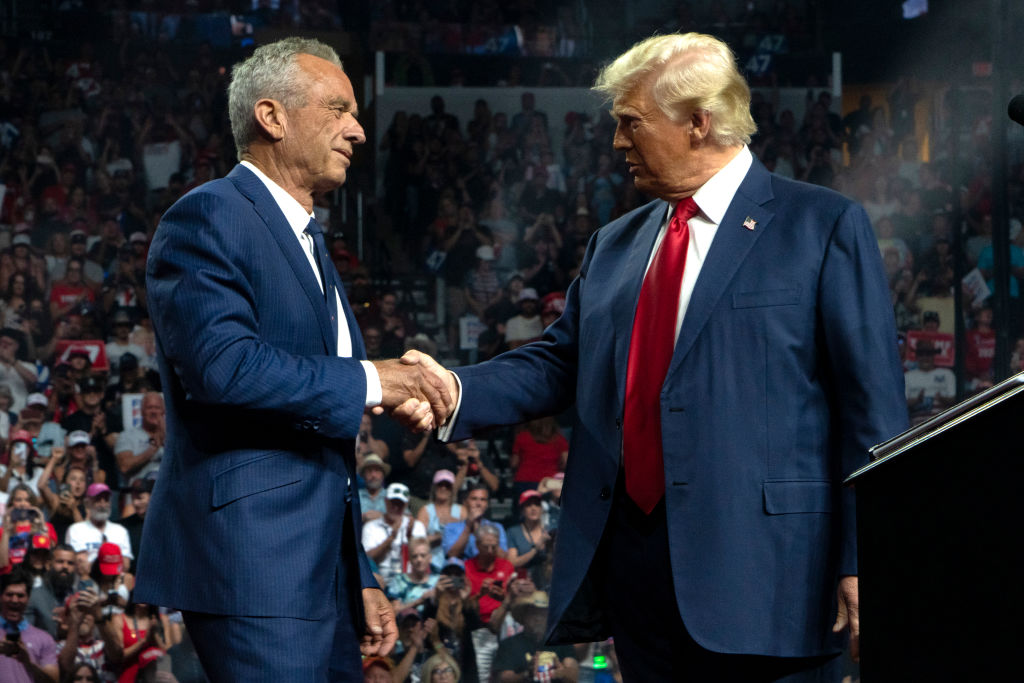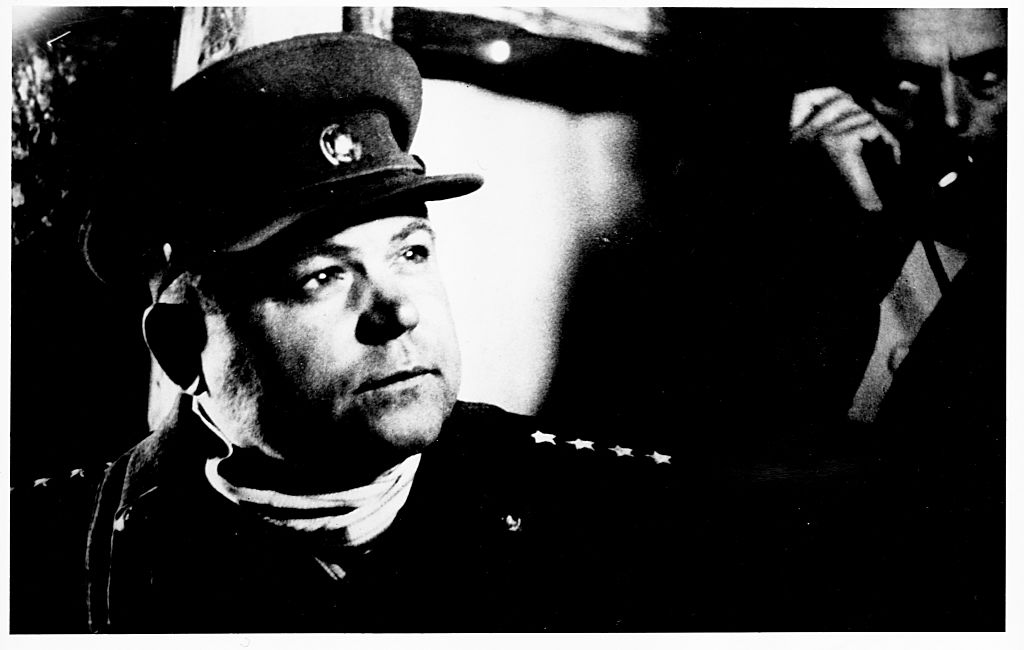The first page of Draghi report on the wretched future of Europe provides an unintentional insight into why the SS EUtanic is heading for the iceberg. It contains a photograph of two engineers. They are, quite naturally, both young women, one of possibly immigrant origin, and we know why: because any realistic portrayal of European engineers as what they mostly are, indigenous males, would be, well, both racist and sexist. Yet all attempts everywhere to make engineering (and those other STEM subjects – science, technology and mathematics) 50 per cent female have foundered, except for medicine. The why of this is complex, and need not detain us here, but the other why, namely that a report about Europe’s future should begin with a lie, should interest us. So too should Draghi’s few mentions of Europe’s catastrophic birth-rate: three mentions, I think, in all, at one stage colourfully called a “demographic headwind.”
“Headwind” is a natural force outside the control of the object facing it, whereas demographics are, to a degree, controllable. Financially rewarding motherhood is one incentive, but where the local culture ruthlessly denigrates and even mocks motherhood – as it does across most of the EU – the only takers of the financial incentives will of course be immigrants. Again, this is a complex problem, but probably the most daunting complexity results from a healthy fear of racism, and a perfectly understandable one as the 80th anniversaries of the liberation of Belsen, Dachau and Auschwitz draw near.
Are we to be made prisoners of history? Well, it looks like it, though much of that history has been invented by the countries within the EU. What made Europe different from the rest of the world was its Christianity. This shaped how we thought, taught and fought, but of course, in this Brave New Secular World of the dashing and dynamic secular body that was the EU, to give credit to a fuddy-duddy concept of something as reactionary as religion was mere superstition. Which is why the Maastricht Treaty made no mention of our common Christian roots. However, what we now call “denial” has been around for a far longer time, back to when the EU was called the EEC, and I made my first trip on “Common Market” business.
I was escorted to an official EEC media restaurant. It was subsidised, of course, and it was quite wonderful, of course: far cheaper than the cheapest restaurant in the city, and as good as the many fine restaurants.
“Did you enjoy that?” asked my companion, a seasoned and therefore cynical observer of the Sink of Iniquity that was the European project.
“Wonderful. And so cheap!”
“And that’s the point of it. It’s to make you feel important. And if you feel important, you’ll say nice things about whatever it is that makes you feel important. Everything about the EEC is a bribe. Everything. Without exception. Including this.”
And so it has proven. Real functioning states have usually come into existence because of the affectionate links between neighbouring peoples. In June, we passed the 80th anniversary of the D-Day landings at Ouistreham in Normandy, originally named by the Flemish-speaking people there, and easily rendered into English: Oyster Hamlet. Likewise, the place from which British troops had departed four years earlier, Dunkirk, or Kirk in the Dunes. The transformation of Flemish communities into French speaking ones was largely peaceful, as civility, affection, and shared myths enabled people to bond. This was in effect an unforced union. and took many different forms in the various countries across the continent of Europe.
The EU was never such a union. It was an ideological entity from the start, and unlike the Soviet Union, which was cohesive through fear, this was coercion through top-down self-interest. Nice meals. Polished, polyglot, entertaining, high-brow company, rather like the Hapsburg Empire but without the exotic cavalry uniforms and spurs jingling in time to a Strauss waltz at a glittering Viennese ball. Indeed, what seemed frivolous about the Habsburgs – the military – was what made their empire real. The Austrian Army was multinational and multi-ethnic fusion that rewarded loyalty and military efficiency and might well have survived had not Sarajevo intervened.
From the outset, the EEC/EU was a luxurious parasite within the protection of NATO, rather like a hermit-crab nesting within the abandoned shell of a larger mollusc. Because it didn’t have to think about defence, the EU indulged in all sorts of fantasies, and worse than that, encouraged its member states to govern themselves as if the iron laws of consequence had been abolished by Robert Schuman’s foundational Coal and Steel Community.
This was a union that could not protect itself and even flattered itself on its passivity. Immigration laws were unnecessary, because we are all much the same anyway, aren’t we? Difference is just another form of racism, surely? France grew indifferent about its borders, while the Danes and Norwegians, and later the Swedes, apparently through that inscrutable yet inviolable sense of Scandinavian superiority, felt that their warm and tolerant civilisations would of themselves teach incomers of the intrinsic superiority of their brand of tolerance. Dark and cold in winter, but uplifting, nonetheless.
So, Europe’s cities filled up with strangers, and lo and behold, far from being impressed by their host counties, the incomers were often repelled and appalled by them, and retired to ghettoes, from which – in which England especially – groups of males occasionally sallied out to engage in a spot of gang-rape or even suicide bombing.
And that was very definitely not the way things were meant to go.
So, now, forlornly, these pathetic, helpless EU countries are trapped in a bind of their own making. Without exception, the indigenous populations of all western European countries have ceased to reproduce themselves. The continent that invented the steam engine, the motor car, that equalled the US aviation industry in its early days, that then pioneered jet aircraft and the computer, no longer invents anything. For all that American politics are deranged as a trunkful of rabid lobsters on methadone, the US economy and its technology surge on. Where in Europe could a genius such as Elon Musk – he who has so brilliantly managed to capitalise on the hitherto useless letter X – prosper as he has in the US?
Few areas highlight Europe’s woebegone technological performance so much as its explorations and exploitation of space. Sorry, correction, the two ex-words should each have been preceded by a “non”, rather like a blunt plough harnessed to two horses pointing in opposite directions.
Just everybody’s space programme – Brazil’s, Russia’s China’s, India’s is apparently ahead of Europe’s. In large part this is because for internal political reasons, the EU remains focussed on reviving fossilised French technologies. France did lead the way in Europe, but like almost everything else in that unfortunate country, its rocketry has entered a doom loop named IRIS2. How is it possible that out of nowhere a South African could go to the US and revolutionise the space industry there, but not here?
Because for all its insane politics, Silicon Valley respects start-ups (it probably invented the noun as well). The EU sniffs suspiciously at them, like a dog at its first tortoise. For example, there is an indigenous European rival to IRIS2 named Rivada, which is building 600 low-orbit satellites that will send data through space securely from source to receiver. Even though it is German, the European Commission’s German President Ursula von der Leyen could not impose her will on the internal market that until September 16th was governed by France’s Thierry Breton, who had long-favoured IRIS2. Why? Well, he would certainly have denied that it’s because both he and it are both French, but he would do, wouldn’t he? Will his replacement think otherwise? Considering the EU’s protective instincts towards francophone dinosaurs, unlikely somehow.
Draghi’s two reports on Europe call for more investment: the word is mentioned no less than 859 times. Motherhood and maternity are not mentioned once, and “birth” gets three mentions. He certainly deplores the relative lack of STEM graduates in the EU compared to the US – 850 per million compared to 1,100 – but he apparently dodges the larger and biological problem, which (to be fair) was probably not within his job-description.
However, it probably comes down to this. A “union” that has chosen neither to define, defend or duplicate itself, at some level or other clearly does not actually believe that its core values are worth protecting or perpetuating. It seems as if Auschwitz has cast a long shadow of taboo, one that has prohibited any useful discussion on identity, race and nation. And so, within its melancholy but sanctimonious penumbra, apparently begins the slow end of the civilisation that once upon a time invented the modern world, and now, perhaps most tragically of all, goes to its doom without complaint.
Kevin Myers is an Irish journalist, author and broadcaster. He has reported on the wars in Northern Ireland, where he worked throughout the 1970s, Beirut and Bosnia.





Cheney’s Iraq war left half-million dead, but his shameless ego goes on